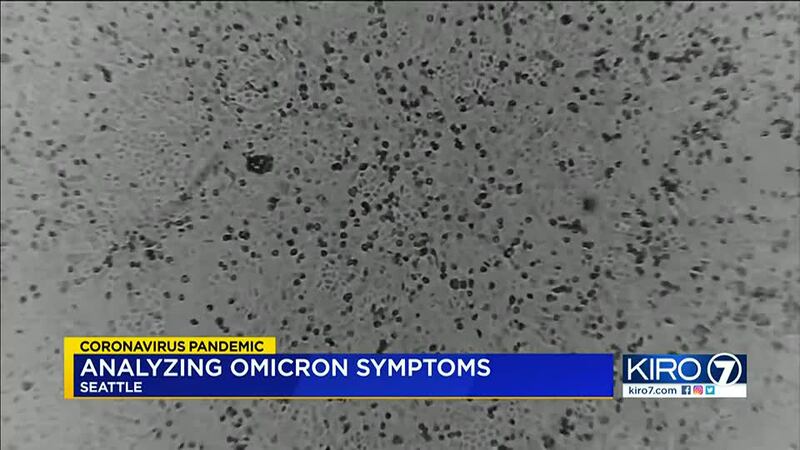SEATTLE — In these early days of Omicron, there are lots of questions.
“The information we have is still very limited but it’s not due to lack of effort, it’s simply the nature of the beast,” said Dr. Joshua Schiffer, an infectious disease physician and researcher at Fred Hutch and the University of Washington.
He said, just like in South Africa, Omicron is likely to become COVID’s dominant strain here.
The reasons why aren’t clear.
“The first possible reason is that the virus sticks to cells better than Delta and it is just more contagious. The second is that it might have the possibility of dodging prior immunity,” Schiffer said.
That means people who have been infected or vaccinated might lose some of their protection from getting sick but might stay protected against severe illness.
Dr. Schiffer said we don’t yet know how ill people will become from Omicron.
Scroll down to continue reading
More news from KIRO 7
- Nick Cannon announces death of 5-month-old son Zen
- Socialist Kshama Sawant faces recall vote in Seattle
- Amazon Web Services outage disrupts dozens of sites
- Do you have an investigative story tip? Send us an email at investigate@kiro7.com
“The very initial data out of South Africa is as encouraging as it could be in the sense that physicians on the ground are reporting that people appear to be less sick. But I still think this is very anecdotal and there are lots of reasons to believe we don’t have the full story yet,” Schiffer said.
He said there’s a lag time before people end up in hospitals.
And when comparing countries, Dr. Schiffer said South Africa generally has a younger population and the vaccination rates are lower than in the United States.
Dr. Danielle Zerr is the head of pediatric infectious diseases at Seattle Children’s and an adjunct professor at the University of Washington.
She’s watching Omicron’s impact on kids.
“There is some early evidence that might suggest that children are more likely to be hospitalized, but again, I think it’s too early to look at that as conclusive evidence,” Dr. Zerr said. “I think in the coming couple of weeks, we’re going to learn more.”
Doctor Seth Cohen is an infectious disease specialist at the University of Washington, and leads infection prevention at UW Medical Center.
He stresses the importance of vaccinations.
“Even if Omicron causes less severe symptoms, this could be offset by potentially infecting more people through higher transmissibility so I can’t stress enough how important and safe vaccination is,” he said.
He said boosters do more than restore waning antibody levels.
“Once you’re boosted, your antibody levels and other immune responses surpass prior levels so that even if vaccines are shown to have reduced efficacy overall for Omicron, having higher levels of antibodies could actually help overcome some of that resistance,” Dr. Cohen said.
©2021 Cox Media Group








